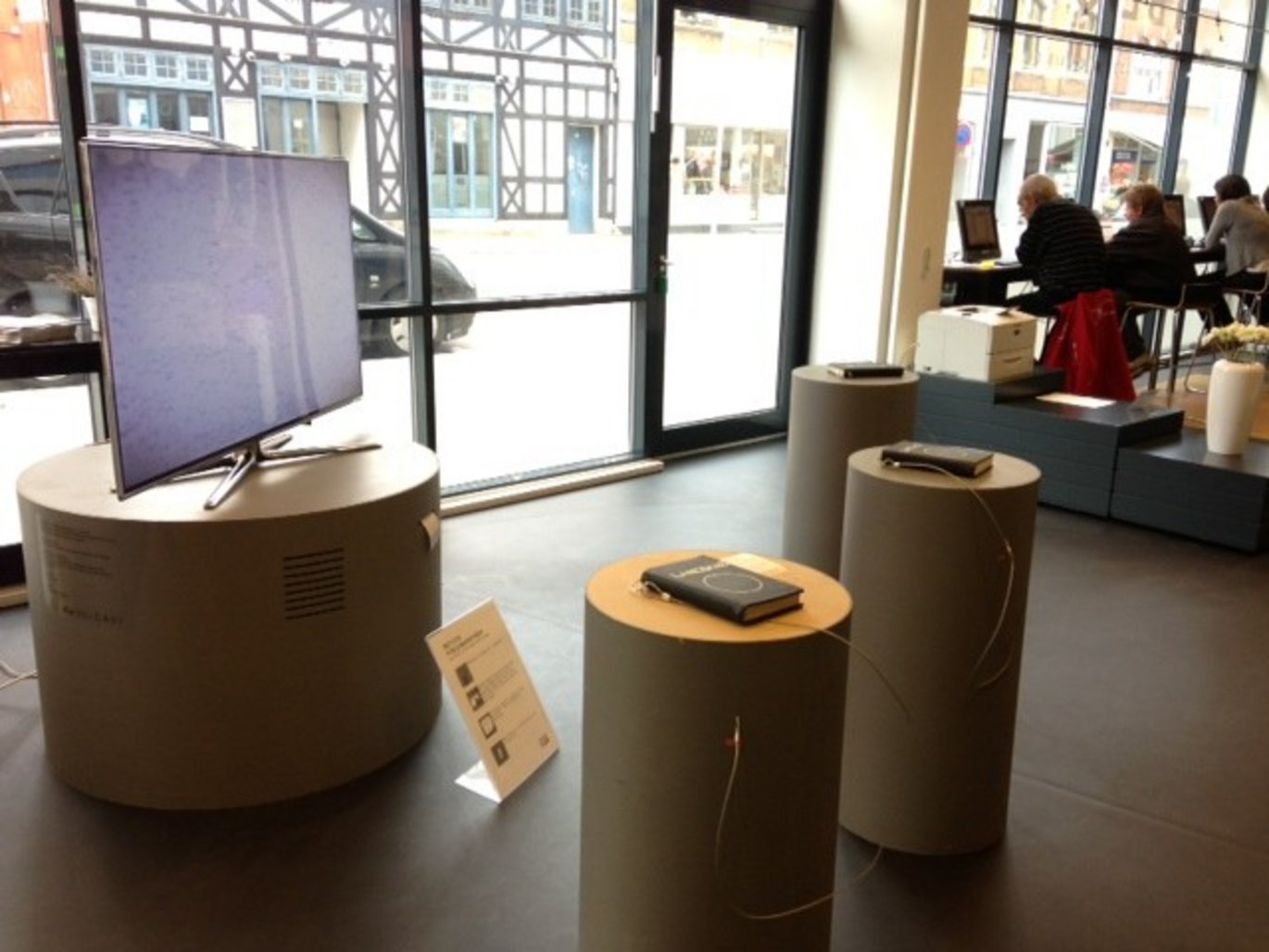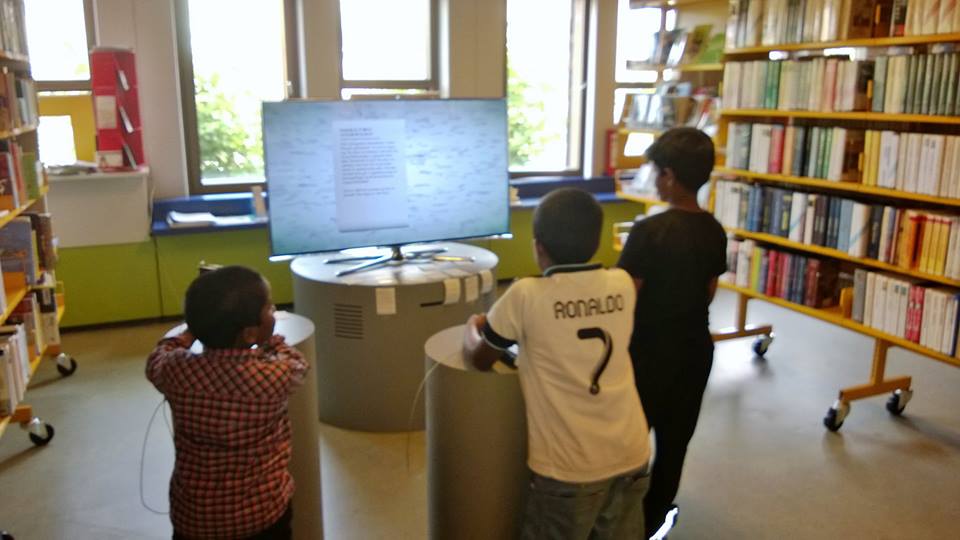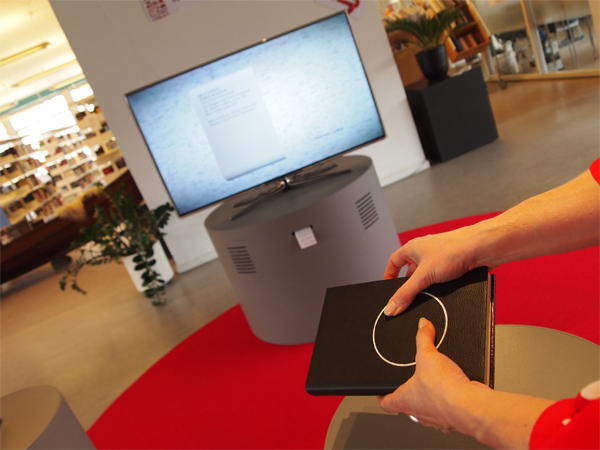Ink on Library Tour
After being presented at the public library in Aarhus, the interactive installation, Ink, has started off on a wider tour of some of Denmark’s other public libraries. CAVI, and project member Søren Pold, are pleased to bring Ink to a broader context, and that more people will be able to experience the poem-generating installation.



Back in May, we were happy to report that the interactive installation, Ink, or Accidentally, the Screen Turns to Ink, was presented at the public library in Aarhus. After its huge success, a “travel version” was developed, making it possible to bring the installation to a broader geographic context, without transport or implementation complications. Ink is an interactive literary installation, with which library visitors can create their own poems by interacting with three books augmented by sensors, and bring home the unique poems printed on library receipt paper. The installation is a collaboration between CAVI, PIT (Participatory Information Technology), Digital Urban Living, The Roskilde Libraries, and The Public Libraries of Aarhus, and the content from which the poems are composed is the work of writer Peter-Clement Woetmann.
For the library tour, the physics of Ink has been made more compact, making it easier to transport and implement at the local libraries. Regarding the transformation, Søren Pold notes that it has mattered a great deal that the librarians have been able to adopt the installation, since they provide daily access to the wider library audience. The installation was part of a greater project, Literature Takes Place (in Danish, “Litteraturen finder sted”), in which one of the aims of Ink was to present digital literature to a wider audience, for some of whom it might be the first time. Additionally, Ink positioned itself in a wider discussion of the exhibition of digital literature, to which the librarians could relate, given the past years’ demands for e-books and so on. But Ink also presented a broader perspective on generative digital literature, where the reader experiences the creation of a text, thereby suggesting other forms of digital literature than the e-book. Following the recent feedback on, and conclusions regarding this autumn’s library tour, Søren Pold is pleased that Ink has encountered a large audience, and facilitated a discussion of the experience of digital literature, as well as other possibilities in the literature genre.
This autumn, Ink was presented at the public libraries in Vejen, Fredericia, and most recently, Nykøbing Falster; the next stops on Ink’s library tour will be the libraries of Hillerød. Roskilde Libraries will soon host a website, through which it is possible to book a month-long exhibition of Ink. The website is expected to launch in mid-November, and it will primarily serve libraries located in Sjælland.
